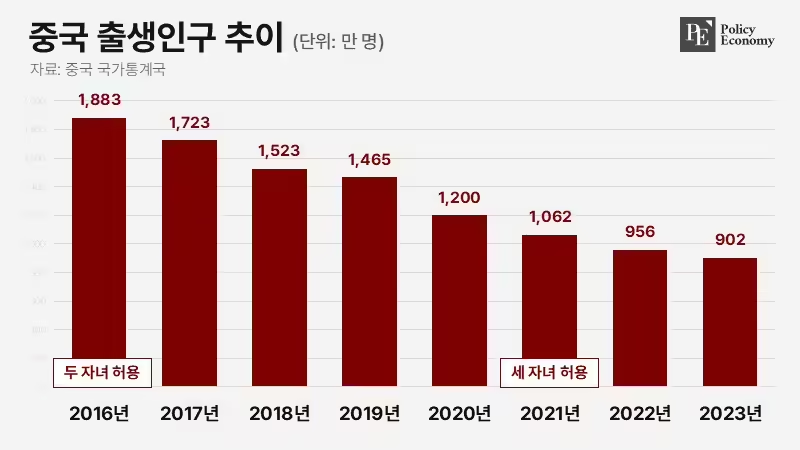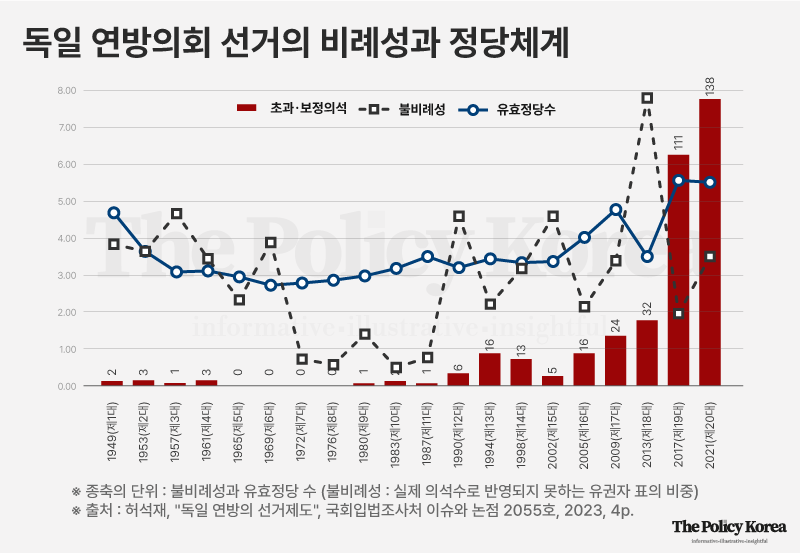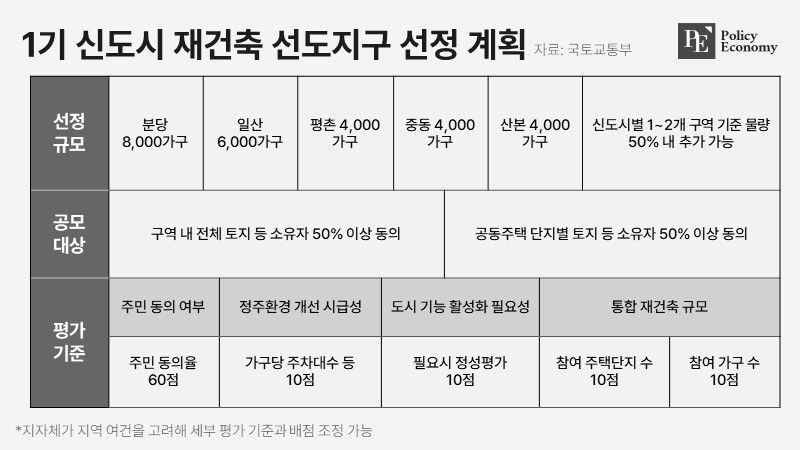[동아시아포럼] 美·中 패권 경쟁에 따른 호주의 대외 전략
변화된 시대, 호주는 새로운 외교 전략을 필요로 한다 현 호주 외료 정책은 미중 공존 아닌 갈등에 치중돼 있어 자국과 뜻 함께하는 아시아 지역 국가들과 긴밀히 협력해야
[동아시아포럼]은 EAST ASIA FORUM에서 전하는 동아시아 정책 동향을 담았습니다. EAST ASIA FORUM은 오스트레일리아 국립대학교(Australia National University)의 크로퍼드 공공정책 학교(Crawford School of Public Policy) 산하의 공공정책과 관련된 정치, 경제, 비즈니스, 법률, 안보, 국제관계 및 사회에 대한 분석 및 연구를 위한 플랫폼입니다.
저희 폴리시코리아(The Policy Korea)와 영어 원문 공개 조건으로 콘텐츠 제휴가 진행 중입니다.
미중 패권 경쟁이 지속되고 있는 국제 사회에서 호주가 대외 전략을 결정하는 절대적 기준은 단연 향후 미중 관계 전망에 내제돼 있는 기회와 안보 위협이다. 지난 4월 페니 웡(Penny Wong) 호주 외무장관은 “미국이 아시아에서 필수 불가결한 존재임은 분명하지만, 지난 반세기 넘게 향유해 온 패권적 지위를 계속 누리기는 힘들 것”이라며 미중 관계에 대한 자국의 진단을 피력한 바 있다. 그러면서 “그 어떤 국가도 패권국으로서 지배적 권력과 이득을 향유하지 않는, 국가들 간 전략적 평형이 달성된 지역의 구축이 자국의 국가 이익에 부합한다”고 역설했다.

미국 중심 국제질서의 정당성?
그간 중국은 달러화 대비 평가절하된 위안화로 막대한 대미 경상수지 흑자를 기록·유지해 왔고, 2016년에는 위안화가 국제통화기금(IMF)의 특별인출권(SDR·Special Drawing Rights)에 편입되면서 2008년 글로벌 금융위기 이후 폭발적인 성장세를 이어가고 있다. 웡 장관의 발언은 이처럼 중국의 성장을 더 이상 묵과하기 힘든 상황에서 미국의 지속적인 패권 우위를 전제로 수립된 현재의 호주 대외 전략을 고수해선 안 된다는 지적에 따른 것으로 풀이된다.
주목할 만한 점은 아직 미국이 아시아 내 자국 권력의 상대적 쇠퇴를 파악하지 못하고 있다는 점이다. 미국은 아시아·태평양(APAC) 지역 등 미 우방국이 지지하는 ‘규칙에 기반한 질서’를 유지하고자 함을 거듭 강조한 바 있다. 그러나 이는 UN 헌장에 명시된 보편적 국제질서가 아닌 ‘미국에 의한, 미국을 위한 질서’를 의미한다. 미국이 더 이상 아시아 국가들의 지지를 이끌어내기 힘들 것이라는 전망이 나오는 것도 이 때문이다.
이렇듯 현재의 국제질서가 철저히 미국의 이해에 기반을 두고 있는 만큼 중국이 불만을 가지는 것은 당연하다. 중국은 최근 인도·태평양 지역의 국가들이 수용할 수 있는 새로운 국제질서를 마련하고 있다. 이와 관련해 제프 래비(Geoff Raby) 전 주중 호주대사는 “중국이 주도하는 규범과 질서의 구축만이 미중 패권 경쟁하에 중국의 공세적 행동을 억제하는 유일한 방책”이라고 천명한 바 있다.
그도 그럴 것이 자국 중심으로 수립한 국제질서임에도 미국이 이를 모두 준수하지는 않는다는 점에서 현행 국제질서에 대한 정당성이 한층 약화된 상태다. 지금까지 미국은 자국의 이익에 따라 각종 국제법을 우회하거나 회피하면서 ‘미국법이 곧 국제법’인 듯 행동했다. 세계무역기구(WTO) 규칙에 위배되는 대중 제재를 감행하는가 하면, 미국을 도와 중국을 견제해 온 호주가 중국의 반덤핑 관세, 물품 금수조치 등의 보복성 무역 제재를 당했을 때도 이를 외면하는 등 소위 ‘악한 패권’의 모습을 자주 보여온 것이다.
미국과 중국이 공존하는 다극적 국제체제가 해답
이렇다 보니 현재로선 미중이 공존하는 다극적 국제체제의 구축만이 유일한 해답으로 간주된다. 외교 전문가들은 미국이 중국의 부상을 인정하고 강대국으로서 존중하도록 설득해야 하는 숙제를 안고 있는 호주가 체제 구축의 열쇠가 될 것으로 전망한다.
그러나 문제는 현재 호주의 외교 및 국방 정책이 미중 공존은커녕 오직 미중 간 ‘갈등’에 기초해 있다는 점이다. 그간 호주는 자국이 다극적 권력 분포의 특성을 보이는 아태 지역에 위치해 있다는 지정학적 사실을 인지하면서도 이러한 사실을 묵과하는 미국과의 동맹을 유지할 뿐, 중국과의 관계 진전에는 비교적 소극적인 모습을 보여왔다.
아태 지역 국가들은 미중 패권 경쟁에 있어 자국에 양자택일을 강요하지 말 것을 거듭 천명해 왔다. 이들 국가 모두 미중 양국에 정치·경제적으로 복잡한 의존 관계를 형성하고 있는 만큼 이러한 요구를 모두 충족할 수 있는 미중 공존의 ‘포괄적 거버넌스’의 수립이야말로 아태 국가들이 공통적으로 추구하는 바다.
이는 미중 사이에서 편 들기를 원치 않는다는 스콧 모리슨(Scott Morrison) 호주 전 총리의 입장과도 궤를 같이한다. 그러나 모리슨 전 총리가 보여 온 각종 친미적 행보는 역내 국가들로 하여금 호주가 미국을 선택한 것으로 인식하게 했고 이는 신뢰도 하락으로 이어졌다. 이에 호주 국민들은 새로운 정권인 앤서니 앨버니지(Anthony Albanese) 총리 체제하에선 달라진 모습을 보여주길 희망하고 있다.
한층 더 복잡해진 호주의 안보 문제
아태 국가들은 기본적으로 미중 양국 모두와 우호 관계를 유지하길 원하고 있다는 키쇼어 마부바니(Kishore Mahbubani) 싱가포르의 전 외교관의 발언처럼 호주도 이에 발맞추는 것이 가장 현명한 선택으로 판단된다. 중국의 고성장에 따른 아시아 지역의 다극화에 대해 미국을 설득하는 데 성공할 경우 호주는 역내에서 자국의 입지를 공고히 함과 동시에 향후 미중 양국 사이의 훌륭한 가교 역할을 수행할 수 있을 것으로 기대된다.
사실 그동안 호주가 미국의 결정에 휩쓸려 온 핵심 배경에는 미국에 의존하고 있는 자국의 국방안보가 있다. 호주가 이같은 종속 관계에서 벗어나 미국의 입김에서 자유로워지기 위해서는 자국의 핵심 이해관계에 기반한 대원칙을 수립하고 그에 따라 행동해야 한다. 당면해 있는 호주의 주권에 대한 가장 중대한 위협은 대만 지역을 둘러싼 미중 갈등 문제다. 만약 호주가 미국의 편에 서지 않을 경우 이는 AUKUS(호주·영국·미국 간 3자안보협의체)의 존속 및 호주의 핵 잠수함 도입에도 다각적인 파급효과를 불러올 것이 자명하기 때문이다.
현재로선 중국이 호주를 공격할 특별한 의도가 없다는 것이 중론이지만, 복잡한 국제 정치 현실 속에서 일국의 의도는 시시각각 변할 수 있는 만큼 호주로선 중국과의 관계를 마냥 낙관할 수 만은 없는 입장이다. 국가 방위체계는 잠재적인 적의 공격력을 기반으로 구축됨이 일반적인데, 이는 위협에 사전 대비함으로써 운신의 폭을 넓히기 위한 정책적 고려의 일환이다.
핵 잠수함을 통해 자국의 독자적인 안보 능력을 제고하고자 하는 호주의 시도 역시 같은 맥락이다. 다만 핵 잠수함의 보유는 인접국들의 안보 불안 및 아태 지역에서의 지정학적 긴장 고조를 야기할 수 있는 만큼 잠수함 운용의 통제는 과제로 남는다. 그러나 만약 현행 AUKUS 체제가 호주의 핵 잠수함 구비 및 핵 능력 보유를 독려해 아시아 지역의 긴장을 심화시키는 등 호주의 장기적 국익을 저해한다면 호주는 AUKUS 체제에서의 이탈 역시 고려에 넣어야 할 것으로 보인다.
또한 분명한 점은 호주는 자국의 이익과 핵심 가치를 침해당할 경우 언제든 중국에 대응할 능력을 갖추고 단호히 대처해야 한다는 것이다. 이를 위해선 국가 이익과 관련된 보다 세부적 문제들에 대해 인접 국가들과 협력해야 하며, 여기에는 인권과 같은 핵심 가치에서 뜻을 달리하는 중국과의 협력도 포함된다. 특히 중국과의 대화 및 협력의 지속은 호주의 운신의 폭을 넓혀줄 것으로 전망된다.
호주가 견지해야 할 자세
앞서 지난해 12월 호주 중국 간 장관급 회담에서 웡 장관과 중국 왕이(王毅) 외교부장은 △인권 문제 △종교와 언론의 자유 문제 △중국에 구금된 호주인 문제 등에 대한 대화를 나눈 바 있다. 이는 향후 호주와 중국 관계에 있어 호주의 가치를 침해하는 행위에 대해 장관급 회의를 포함한 상위 정부 부처 간 회담의 가능성 역시 기대하게 해준 기념비적인 일로 평가된다.
미중 양국 모두와 우호적 관계를 유지하는 것이 호주의 국익을 증진시킨다는 점에선 이견이 없다. 다만 미중 간 패권 경쟁이 계속되는 지금 이같은 입장을 견지하기 위해서는 자국과 뜻을 함께하는 많은 아시아 지역 내 국가들, 특히 호주와 함께 중추적 중견국 지위를 공유하는 한국과의 긴밀한 협력이 중요하다. 단, 이를 위해서는 필요에 따라 미국의 결정을 거스르는 결단도 내려야 할 것으로 보인다.
원문의 저자는 호주의 총리내각부, 고용산업관계부, 재무부 장관을 역임하고 현재는 호주국립대학교(ANU·Australian National University)의 연구원으로 재직 중인 마이클 키팅(Michael Keating) 교수입니다.
Michael Keating is former Secretary of the Department of Prime Minister and Cabinet, the Department of Finance and the Department of Employment and Industrial Relations. He is presently a visiting fellow at The Australian National University.

Australia’s international strategy between the US and China
The starting point for any review of Australia’s international strategy must be an assessment of the future US–China relationship, focussing on possible threats and opportunities. A good start was made in a speech by Australian Foreign Minister, Penny Wong, in April 2023. While Wong thinks that the United States will remain ‘indispensable’, she understands that it will no longer be the dominant power in Asia.
![]()
Instead, Wong said that Australia’s national interest is to bring about a region where all countries benefit from a strategic equilibrium where no country dominates and no country is dominated. The Chinese economy overtook the US economy in 2016 based on purchasing power parity and has continued to grow much faster since. The idea that the United States can continue to dominate is not a sound basis for Australia’s international strategy.
Yet the United States does not seem to recognise the change in its position in Asia. The United States, with Australia’s support, says that it wants to preserve the so-called ‘rules-based order’. But that order is not the one enshrined in the UN Charter. Instead, it was established by the United States and was intended to serve US interests.
Understandably, China might want to make changes to the US rules-based order — changes that could readily be accommodated by the other nations in the Indo-Pacific. As Australia’s former ambassador to China Geoff Raby says: ‘An inclusive framework of norms, rules and habits of consultation which include China and of which it is an author, will be the best means of constraining bad behaviour [emphasis added]’.
But there is also the problem of the United States not always abiding by the present rules-based order. Instead, it is happy to ignore or bend rules when rules don’t suit it. For example, US trade sanctions on China have never been authorised by the World Trade Organization. But when China introduced trade sanctions on Australia, the United States quickly jumped in to replace the import market.
A multipolar system of international governance offers the only sustainable way forward. Australia should be working to encourage the United States to accept this new reality where it needs to share power.
The problem is that both Australia’s foreign and defence policies are based on a contradiction. Australia recognises the reality that it is living in a multipolar region, but it ties itself to an alliance partner that doesn’t.
The rest of the region doesn’t want to be forced to take sides. Like Australia, other regional members depend upon both major countries and share a common interest in establishing a set of ongoing governance arrangements that accommodates the reasonable demands of all member countries.
For Australia, this would represent a return to the former position where Australia was clear that it didn’t wish to take sides in the struggle for influence between the United States and China. But under former prime minister Scott Morrison, Australia was seen as a mouthpiece for the United States so often that it weakened its regional credibility.
As former Singaporean diplomat Kishore Mahbubani said, ASEAN countries want to have good relations with both the United States and China, and the wisest policy for Australia is to align itself with the ASEAN position where possible. That way, it could play a significant bridging role between Beijing and Washington. Plus, Australia could enhance its standing with other countries in the region if it played a leading role in persuading the United States to accept the reality of a multipolar region.
The key to Australia’s subservience to the United States, and its engagement in so many US wars, has been its perception that it depends upon the United States for defence. But Australia needs to identify its own interests clearly and all actions should be determined accordingly.
Right now, the most immediate threat to Australia’s sovereignty would be a US–China conflict over Taiwan. Should Australia not join the United States in defence of Taiwan, the issue might impact the AUKUS agreement and Australia’s purchase of nuclear submarines.
While many have argued that China has no intention of attacking Australia, intentions can change quickly. Hence defence forces are usually structured against an assessment of the capability of potential adversaries, and China’s capability is rising rapidly.
In that context, it is a legitimate response for Australia to buy nuclear submarines to strengthen its independent defence capability. But that equally requires that it controls the use of these submarines. If AUKUS is not compatible with Australia being able to determine and protect its long-run regional interests, then Australia should be prepared to let the agreement go.
Australia can and should push back when its interests and values are challenged by China. The government is right when it says that ‘we will cooperate where we can, we will disagree where we must, and we will engage in our national interest’.
But Australia needs to work with other nations on specific issues of national interest, even where they are not like-minded in terms of adherence to liberal values, including respect for human rights. Australia’s ability to push back will be enhanced if it maintains ongoing dialogue, especially with China. For example, the renewed discussion at the ministerial level has meant that issues that offend Australian values — such as unexplained detention of Australian citizens in China, human rights matters, and press and religious freedoms — can now be raised and discussed at senior government levels.
It is clearly in Australia’s interests to work with both China and the United States. That will require Australia to work closely with the many other like-minded countries in the region, and, if necessary, be less subservient to the United States.



























